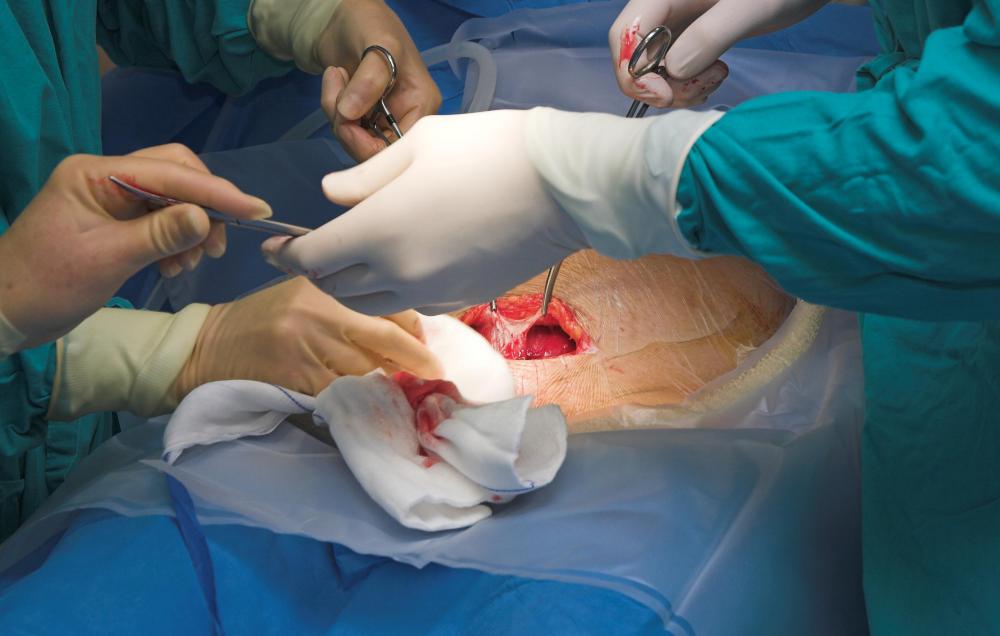At WiseGEEK, we're committed to delivering accurate, trustworthy information. Our expert-authored content is rigorously fact-checked and sourced from credible authorities. Discover how we uphold the highest standards in providing you with reliable knowledge.
How do I Avoid a C-Section Infection?
A c-section can be a very difficult procedure for both mother and child. In some cases, the complications of the mother who has undergone a c-section do not end at childbirth. Typically, these women are required to use extreme care in order to prevent c-section infection, which can be both dangerous and painful. In order to prevent this condition, it is essential that those who have undergone a c-section keep the area of the incision dry and clean. In addition, attending follow up visits with the physician and following his or her orders are important in achieving optimal results when trying to prevent c-section infection.
One of the most important ways to prevent c-section infection is to keep the area of the incision dry. To do this, it is essential that mothers monitor the incision and bandage for signs of blood or discharge, and change the bandage when appropriate. Those who do exhibit bleeding or discharge are typically encouraged to carefully wipe the area with a small amount of water and soap, and reapply a clean bandage as quickly as possible. In addition, after showering or bathing, new mothers who wish to prevent c-section infection should quickly dry off the incision and re-bandage it quickly. In the more serious cases, women must undergo sponge baths in an attempt to prevent the c-section incision from getting wet at all.

Mothers who have undergone a c-section and wish to prevent c-section infection are also typically instructed to avoid applying ointments, essential oils, or other products to the incision. While these products may aid in decreasing the appearance of the scar, they are often to blame for the development of serious infections. Those who wish to decrease scarring associated with a c-section are typically encouraged to wait until the incision has healed completely. At this point, it is safe to apply cream, ointments, and oils to the incision with little risk of infection.

In order to achieve the greatest results in preventing c-section infection, it is essential that those who have undergone a c-section work with their physicians as much as possible. This means not only monitoring the incision for signs of infection and following the physician's instructions, but also attending all scheduled follow-up appointments in order for the doctor to view the incision for his or her own self. In some cases, a nurse or other type of medical professional may be able to provide additional guidance in preventing c-section infection.
AS FEATURED ON:
AS FEATURED ON:


















Discuss this Article
Post your comments